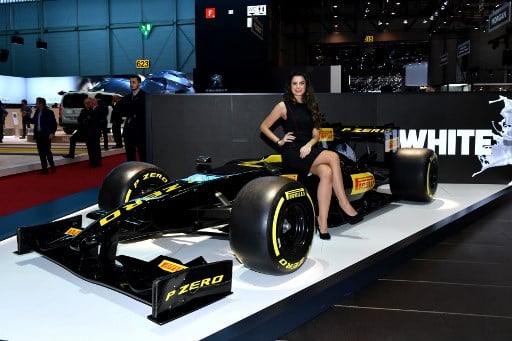Sandra Muller started the #balancetonporc (Squeal on your pig) movement in response to the wave of abuse allegations that toppled movie producer Harvey Weinstein.
In a Twitter post on October 13, she told of how senior French TV executive Eric Brion had humiliated her, saying: “You have big breasts. You are my type of woman. I will make you orgasm all night.”
The post led to an outpouring of tales of harassment and assault, which were hailed as ending a culture of permissiveness in France towards unwanted advances.
But on Thursday Muller said that after publicly apologising for his remarks, Brion had “changed tack” and decided to launch legal action against her.
“I have been issued with a summons, in which Mr Brion demands 50,000 euros in damages for defamation, the publishing of the ruling and 10,000 euros in legal fees,” she wrote in a Facebook post.
A defiant Muller, who was listed among the “silence breakers” named by Time magazine as Person of the Year in 2017, said she would “see this fight through to the end”.
“#balancetonporc has allowed victims to make their voices heard and shed light on a real societal problem that remains taboo,” she said.
“I hope the trial will provide an opportunity to have a real debate about how to combat sexual harassment,” she said, accusing Brion of “trying to silence me”.
Her lawyer Alexis Guedj told AFP that Brion had filed a court summons for defamation in Paris on January 10, but a hearing date has yet to be set.
'Court of social media'
In an opinion article in Le Monde newspaper on December 30, Brion admitted making “inappropriate remarks to Sandra Muller” at a cocktail party.
“I fancied her. I told her so, in a heavyhanded manner,” he said, offering an apology.
But he also accused Muller of “deliberately creating ambiguity about what happened” by accusing him in a call to name and shame workplace tormentors, and by linking it to the response to the Weinstein affair.
Insisting he had never worked with Muller, Brion said: “The personal and professional consequences of this conflation of heavyhanded flirting and sexual harassment 'in the workplace' were very serious and damaging.”
Brion said he had received insults over the incident and found it “nearly impossible” to find work as a result of Muller's tweets.
He added he would have “much preferred” to be tried by a court instead of by the “court of social media”.
A group of prominent French women, led by film star Catherine Deneuve, sparked international controversy last week by defending a man's right to “bother” women.
In a letter in Le Monde, the women complained that the campaign against harassment had become “puritanical”.




 Please whitelist us to continue reading.
Please whitelist us to continue reading.